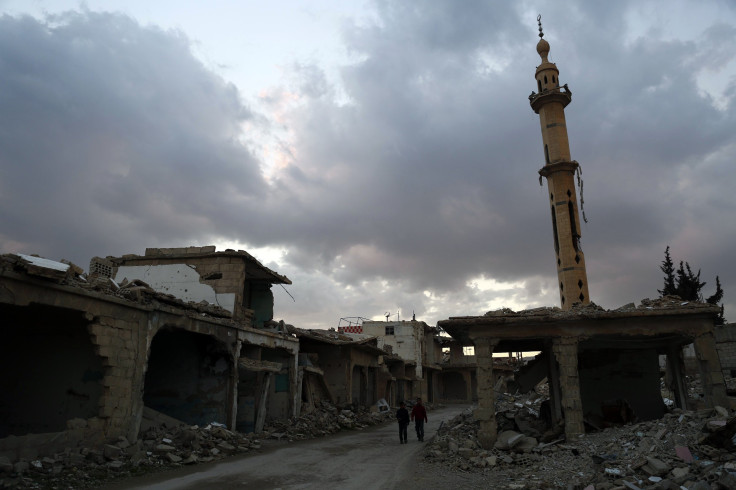Syria’s Fragile Ceasefire Holds For Second Day Despite Sporadic Incidents Of Violence

UPDATE: 7:10 a.m. EST — The Russian military said Sunday that the fragile ceasefire in Syria is being "largely observed" despite nine violations being reported in the past 24 hours. "On the whole, the ceasefire regime in Syria is being implemented," Lieutenant General Sergei Kuralenko, head of the country's coordination centre in Syria, was quoted as saying.
Original story:
A temporary break in Syria’s five-year-long civil war entered its second day Sunday, after a truce brokered by the U.S. and Russia survived its shaky first day. Many now hope and expect that the truce, which has been unanimously endorsed by the United Nations Security Council, would lay the groundwork for negotiations and lead to a lasting peace in the war-ravaged nation.
“I think this is the first time we've woken up without the sound of shelling,” Ammar al-Rai, a 22-year-old student in the Syrian capital of Damascus, told Agence France-Presse. Prior to the ceasefire, which took effect Friday midnight, warplanes — allegedly Russian — carried out dozens of strikes in Damascus’ rebel-held suburb Douma, killing at least eight people.
And on Sunday, warplanes carried out airstrikes in six Syrian towns in the western part of Aleppo province, Reuters reported, citing the U.K.-based Syrian Observatory for Human Rights. It is not yet clear which country carried out the airstrikes.
According to Russia’s state-run Sputnik news agency, Moscow — which has waged nearly five months of intense airstrikes in support of Syrian President Bashar Assad — has suspended all air raids in the country in line with the “cessation of hostilities” announced last week. However, it is still using “at least 70 drones” to carry out surveillance in the region.
Although the landmark ceasefire agreement, negotiated by U.S. Secretary of State John Kerry and his Russian counterpart Sergei Lavrov, stipulates that Assad’s forces and an array of rebel groups — including those backed by the U.S. — will stop fighting each other, it does not cover operations involving militants of the Islamic State group and the al Qaeda affiliate Jabhat al-Nusra.
On Saturday, fighting continued against ISIS, which reportedly launched a surprise offensive on a northern town and carried out a suicide bombing in central Syria.
“The attackers were eliminated,” Redur Xelil, a spokesman for the Syrian Kurdish YPG militia, told Reuters, without providing further details.
The ceasefire also faces formidable opposition from Turkey, which said Friday that it had not ruled out airstrikes against the U.S.-backed Syrian Kurdish rebels. The Turkish government considers the group an offshoot of the Kurdish insurgents within its country.
“If there are threats we will take measures against them as part of our engagement rules,” Ibrahim Kalin, spokesman for Turkish President Recep Tayyip Erdogan, reportedly said.
Meanwhile, top U.N. and European Union officials also expressed hope that the ceasefire may eventually help in resumption of peace talks, despite there being “no shortage of attempts to undermine this process.”
“This is the first chance to put an end to violence on the ground and should not be missed. If it holds, it will create the conditions for full, sustained and unimpeded humanitarian access throughout Syria,” European Union’s foreign policy chief Federica Mogherini said in a statement released Saturday. “It will provide an opportunity to deliver on the confidence building measures agreed by the Security Council.”
© Copyright IBTimes 2024. All rights reserved.












